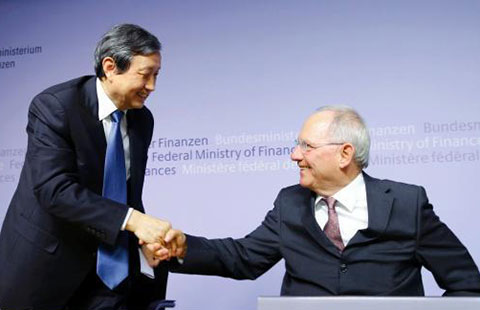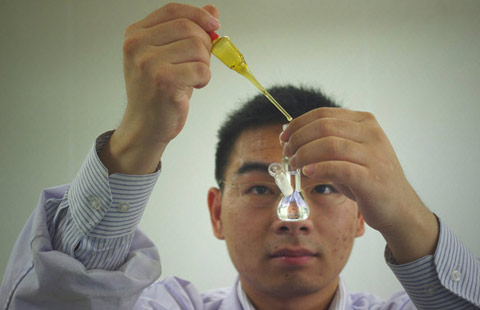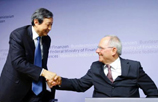Fiscal reform program designed to cope with 'new normal'
By Cai Muyuan (chinadaily.com.cn) Updated: 2015-03-03 16:31Facing looming downward pressure on the world's second largest economy, Chinese leadership has pinned much hope on decisive reforms in hope of more healthy and effective growth which has slowed down to a stage of "new normal" -- the economy grew at its lowest pace in 24 years, expanding by 7.4 percent.
Yu Zhengsheng, the chairman of the CPPCC, delivered a work report on The Third Session of the 12th National Committee of the Chinese People's Political Consultative Conference (CPPCC),in in which he looked back on the national political advisory body's work last year and set new goals for 2015.
China saw a fiscal reform program designed to improve the taxation and local government financing systems within two years, the liberalization of the household registration system, and revisions to lending interest rates which gave commercial banks more freedom.
The government also abolished registered capital and administrative registration requirements for new businesses, and slashed red tape blamed for stifling private investment.
The CPPCC members studied deeper implementation of reforms in State-owned companies, price and tax on natural resource products and accounting on gross ecosystem product.
Meetings have been held that focus on enhancing and improving macro-control to cope with the downward pressure of the economy. The CPPCC has worked with special committees and local governments to research and advice on reducing overproduction, technology innovation in small and medium-sized firms, regulating and developing Internet finance, developing information consumption and enhancing the research and application of big data.
The CPPCC members have also advised on building a new agricultural operating system and pushing the agricultural developing mode and discussed on the opportunities and challenges of genetically-modified agricultural products.
In particular, political advisors offered suggestions on key issues such as judicial independence, government transparency, air pollution prevention and control as well as structural optimization of economy.
Yu noted that most of the CPPCC consultative activities and inspections, surveys and studies last year focused on deepening reform.
According to Yu, in 2015, political advisors should deliberate and make suggestions on the formulation of China's 13th Five-year Plan, and strive to make strategic and targeted suggestions and proposals.
The CPPCC will conduct studies on key topics such as the Belt and Road initiatives and air pollution in the Beijing-Tianjin-Hebei region, to better serve the Party and the government in their decision-making process.
"This year is a critical year for comprehensively deepening reforms, the opening year for advancing the rule of law in an all-round way and the final year for completing the 12th Five-year Plan," Yu said, noting the committee's focus on reform in their suggestions and proposals.
Xinhua contributed to the story.
- Israel requests to join Asian Infrastructure Investment Bank
- Chinese stocks rebound on April 1
- China, the West in Africa: more room for cooperation than competition
- Nanjing cuts taxi franchise fees
- Air China increases flights to Milan, Paris
- JD.com raises delivery charges
- Veteran corporate strategist upbeat about China economy
- L'Oreal China sales revenue up 7.7% in 2014

















